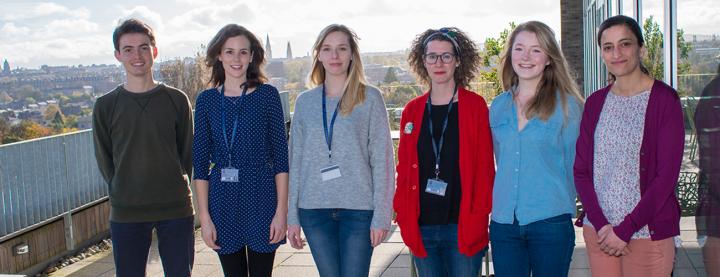Noor Gammoh
Brain Cancer Survival Pathways

Research in a Nutshell
Cells in our bodies are continuously exposed to external insults that can cause the accumulation of harmful material such as pathogens, damaged organelles or protein aggregates. Fortunately, cells have developed an ability to dispose of such damaging components through a process known as autophagy (from the Greek for self-eating). The degradation products of autophagy can also help fuel cell growth especially during periods when nutrient availability is limited. Because of these properties, autophagy has been linked to a number of diseases including neurodegeneration, autoimmune disorders and cancer. The questions we ask in our lab are (1) how is autophagy regulated in cells and (2) how does it affect disease progression? By focusing on devastating diseases (such as brain tumours and neurodegeneration), we hope to integrate our knowledge from basic cell biology to disease modelling in order to develop better approaches for treatment.

People |
|
| Noor Gammoh |
Investigator, CRUK Career Development Fellow and UoE Reader |
| Joanne Simpson | Postdoctoral Fellow |
| Agata Makar | PhD student |
| Alina Zitskaja |
Research Assistant |
Contact
Partners and Funders
- Cancer Research UK / Career Development Fellowship / Jan 2017 – Jan 2024
- The Carnegie Trust for the Universities of Scotland / Research Incentive Grant / Jan 2016 – Dec 2016
- University of Edinburgh / Chancellor’s Fellowship / Oct 2013 – Sept 2018
Scientific Themes
Brain Cancer, Glioblastoma, Autophagy, Degradation, Therapy, Treatment, ATG, ATG5, ATG16L1, ATG7, FIP200, LC3
Technology Expertise
RCAS glioma mouse model, in vitro lipidation, autophagy assay

